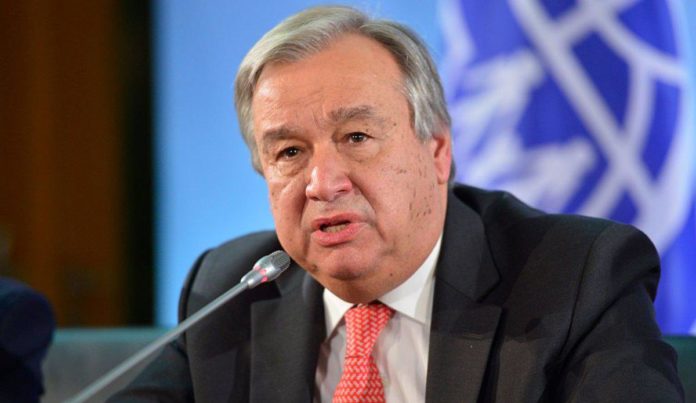By: Christian Conteh
Ahead of the UN-backed Global Disability Summit to be co-hosted by Ghana and Norway in February 2022 the United Nations Secretary-General has called for a disability-inclusive pandemic response to the ongoing COVID-19 Pandemic. According to António Guterres, those with a disability are among the hardest hit by the pandemic.
“COVID-19 has laid bare the persistent barriers and inequalities faced by the world’s one billion persons with disabilities”, he said.
Mr. Guterres argued that a disability-inclusive pandemic response and recovery should be guided by persons with disabilities themselves.
The response he further noted should, “forge partnerships, tackle injustice and discrimination, expand access to technology and strengthen institutions to create a more inclusive, accessible, and sustainable post-COVID-19 world.”
According to the UN, about 80% of persons with disabilities live in developing countries with an estimated 46% of people aged 60 years and over having one form of disability. One in every five women is likely to experience disability in her life, while for children, that figure is one in ten.
To respond to the needs of these people, the UN Secretary-General urged all countries to fully implement the Convention on the Rights of Persons with Disabilities. Governments, he said, should also work to increase accessibility, and dismantle legal, social, economic and other barriers with the active involvement of persons with disabilities and their representative organisations.
“Realizing the rights, agency, and leadership of persons with disabilities will advance our common future”, he argued.
Adding that, “we need everyone, including persons with disabilities on board, to achieve the Sustainable Development Goals.”
Audrey Azoulay is Director-General of the UN Educational, Scientific and Cultural Organization (UNESCO) speaking about the digital world she narrated how the pandemic has battered those with disabilities.
“As part of our lives moved online, confinement measures have brought to the fore another series of inequalities affecting people with disabilities: the inequalities relating to technology and the digital world,” she said.
According to the latest Education Monitoring Report, only 68% of countries have a definition of inclusive education and just 57% mention all the multiple marginalised groups.
For Azoulay, these are some of the issues that should be discussed at the next UN-backed Global Disability Summit.




